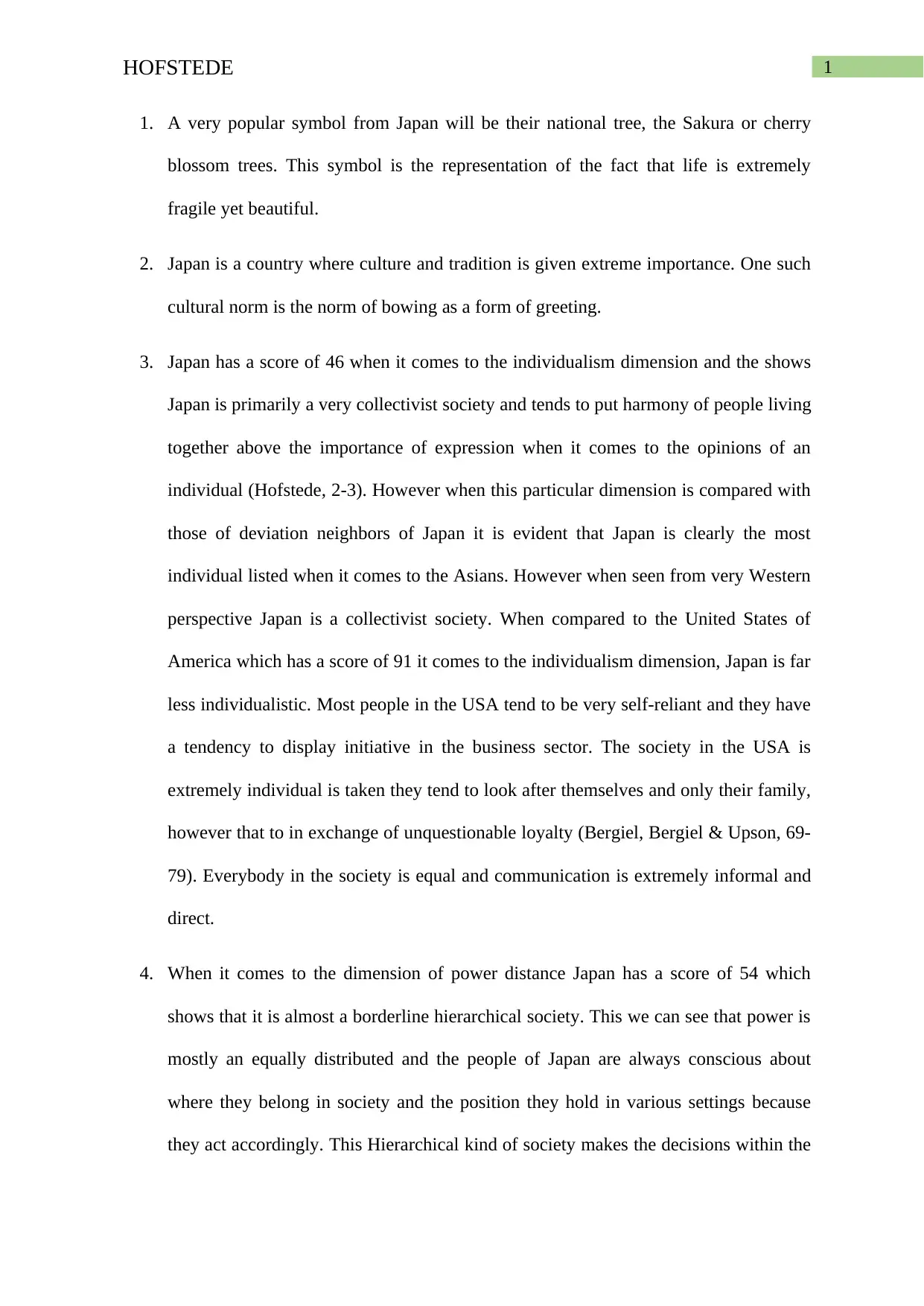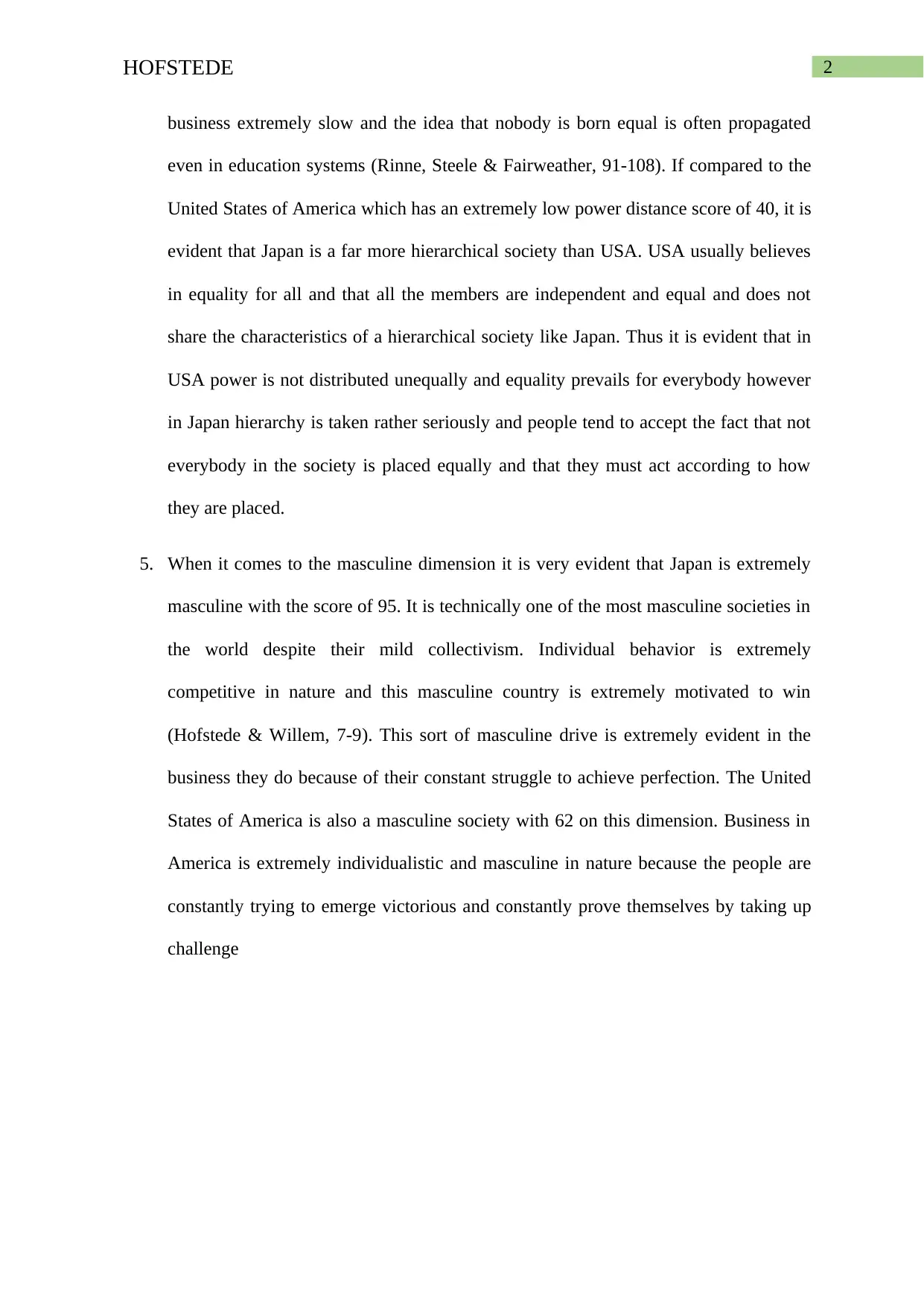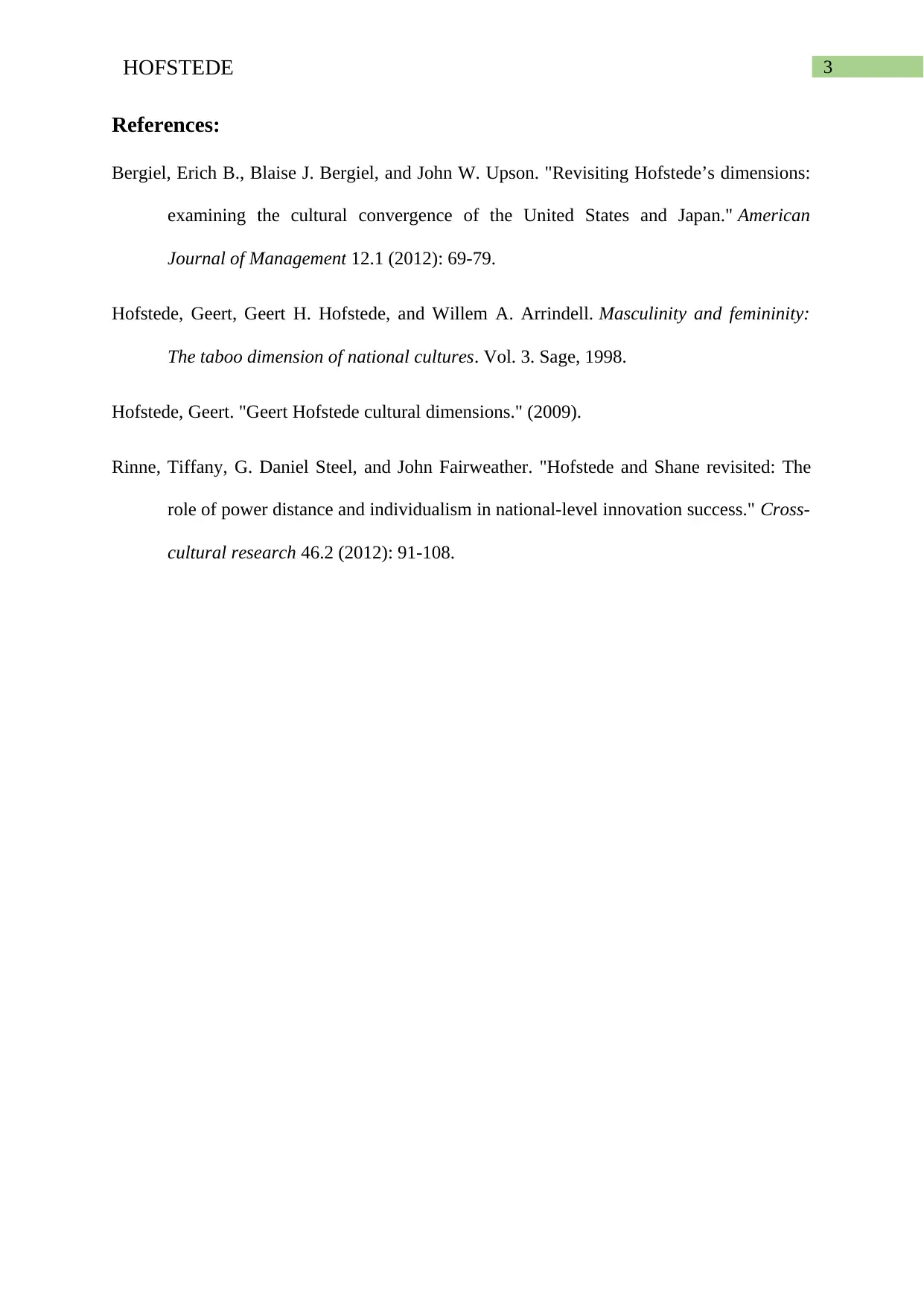Analyzing Japan through Hofstede's Cultural Dimensions: Case Study
VerifiedAdded on 2022/12/30
|4
|773
|48
Case Study
AI Summary
This case study examines Japan through the lens of Geert Hofstede's cultural dimensions. It explores key aspects of Japanese culture, including its collectivist nature, respect for tradition, and the importance of harmony. The analysis delves into Japan's scores on dimensions such as individualism, power distance, and masculinity, comparing them with the United States to highlight cultural differences. The study reveals that while Japan is collectivist and hierarchical compared to the individualistic and less hierarchical USA, it is still the most individualistic among its Asian neighbors. The case study emphasizes Japan's high masculinity score and its implications for business practices. It references relevant literature to support the analysis, offering insights into leadership, management, and cross-cultural communication within a global context. This assignment is a valuable resource for students studying leadership, management, and international business, providing a clear understanding of how cultural dimensions influence organizational behavior and business strategies.
1 out of 4










![[object Object]](/_next/static/media/star-bottom.7253800d.svg)